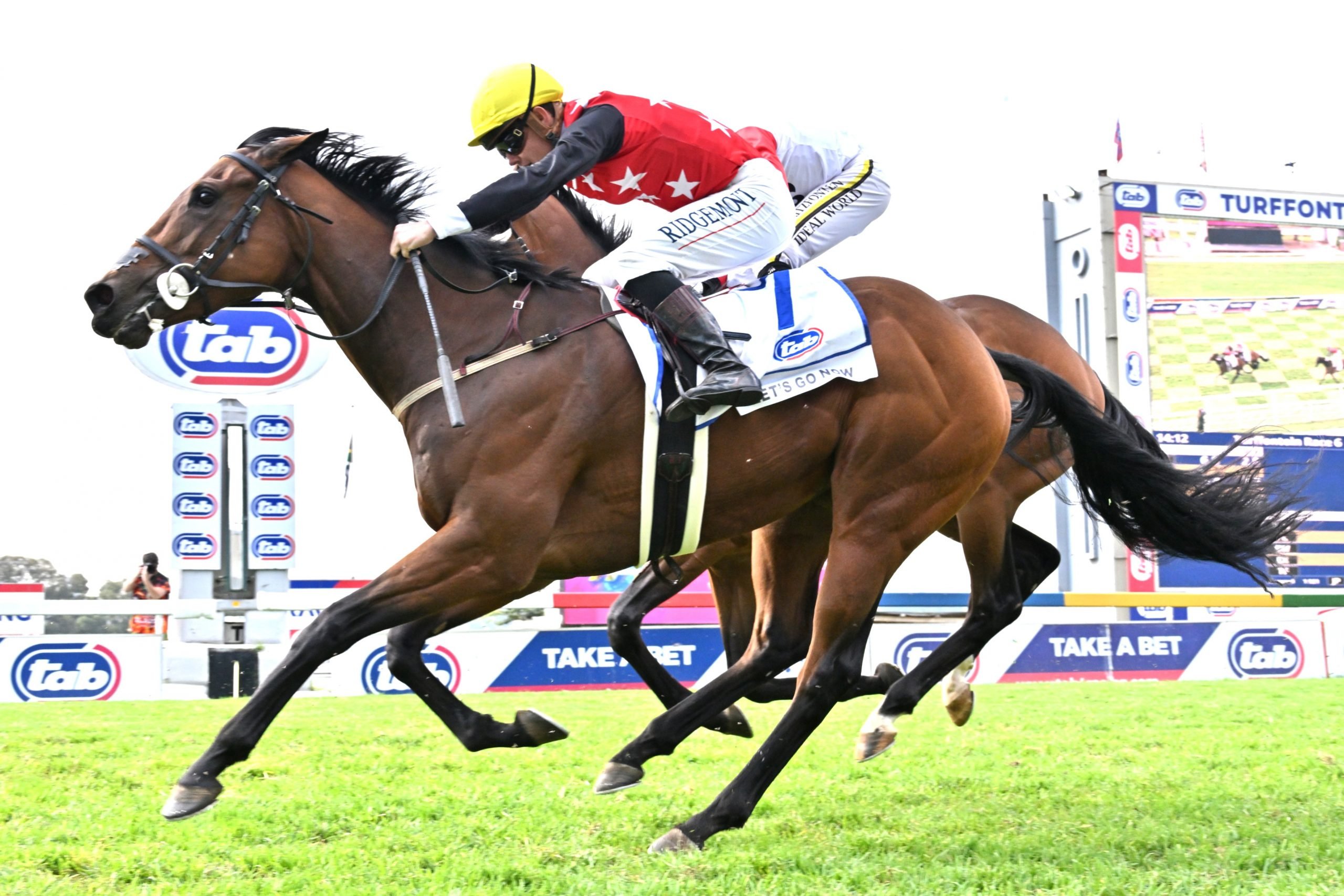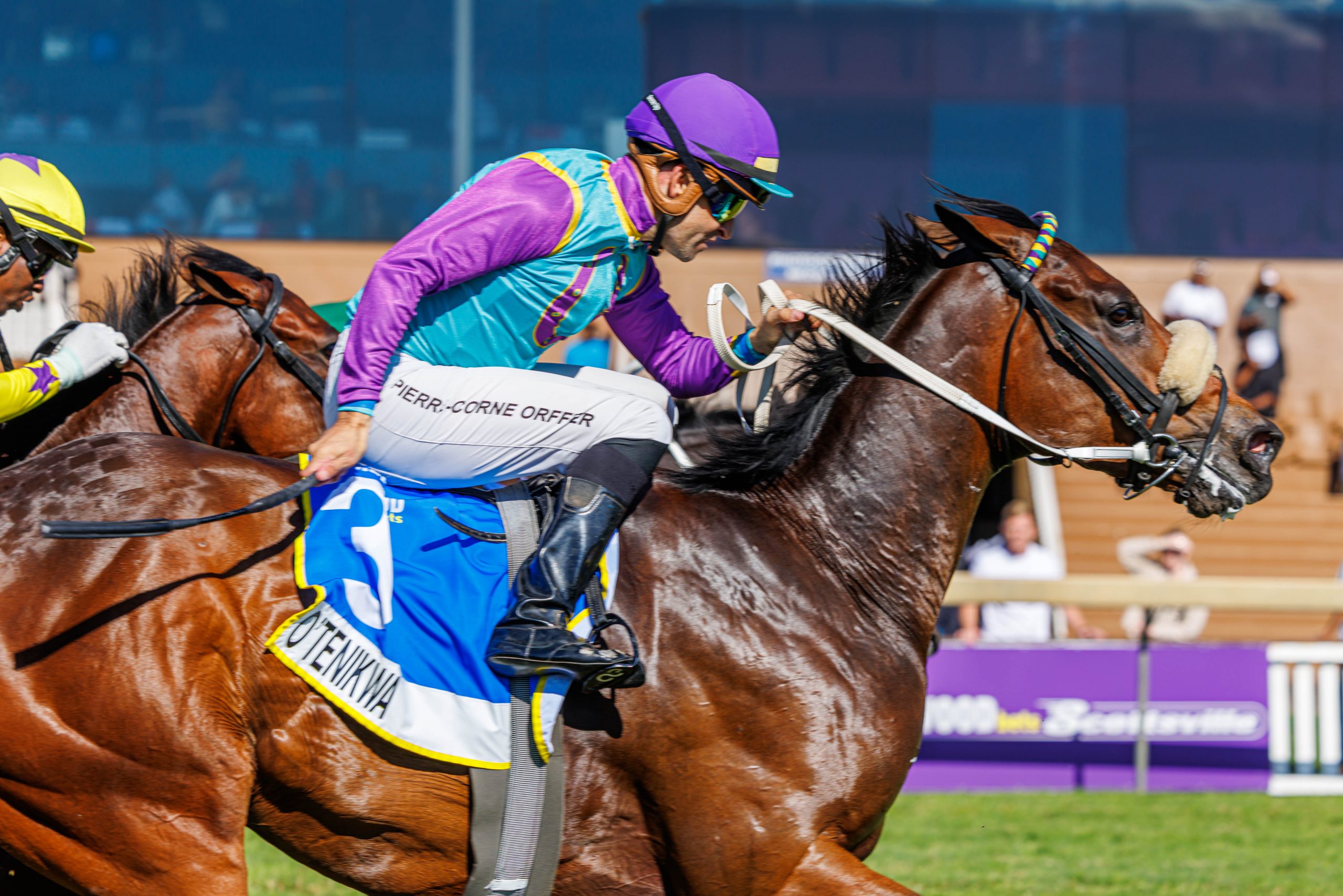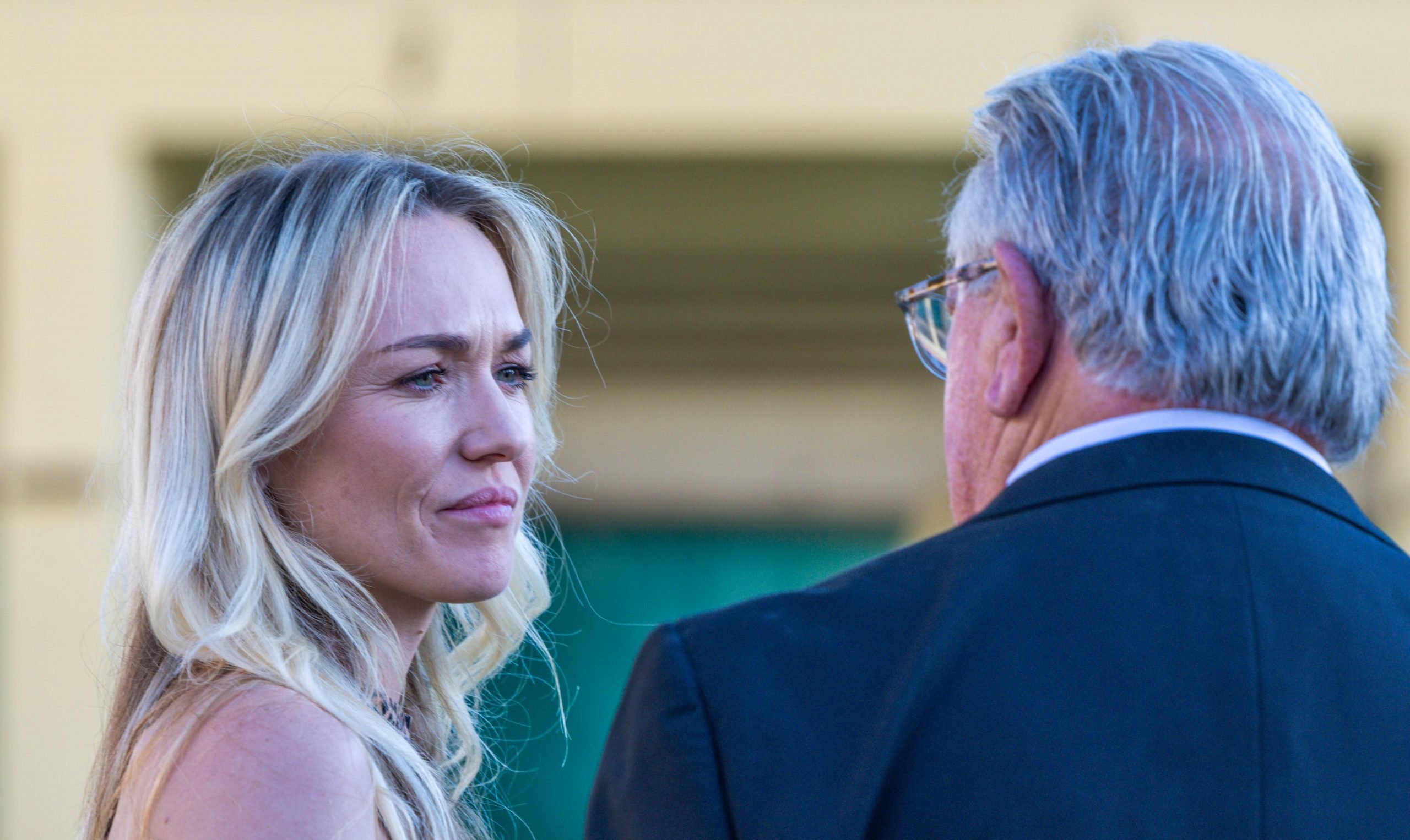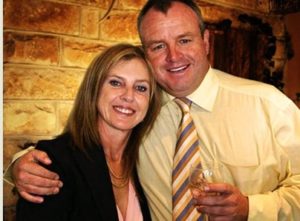
The A Team. Mike and Diane De Kock
A few days before boarding an Emirates flight to attend a horse sale in Italy, South African international superstar racehorse trainer Mike De Kock chatted to David Mickleburgh about his life, his passions and his window on the world of racing.
Says David, “South Africans are at one in acclaiming Mike de Kock as our greatest trainer and the man who more than any other has made the world sit-up and take note of the qualities that lurk within the South African racehorse. While there can be no doubt that de Kock is an outstanding trainer, I would suggest that he owes his phenomenal achievements not only to his skills on the tracks of the world, but equally importantly, to his obvious ability to select a 100 – strong team of assistants, advisors, professionals and yard hands that are not only devoutly loyal and dedicated to him and the sport, but in whom he also has total confidence to do the right thing at the right time. He also displayed a remarkable prescience when he chose his wife and son! But de Kock is a lot more than just a trainer – he has become an ambassador for our industry overseas, he feels for the injustices and inequalities that bedevil the sport and does not fear to criticize. Because he is a person with passion for his vocation, he is frank and vocal in his desire to level the playing fields and to bring back Mr Everyman to the country’s race tracks to share this passion”
Nowhere is Mike more passionate or vocal than when it comes to attacking the unfair, almost bizarre obstacles, which have been erected by unknown demi-gods to frustrate our equine export business.
“It costs the racehorse a potential health threatening 147 days (including 40 days in Mauritius where they are locked in their stables from 16h00 to 08h30 with only an early morning feed, then a 50 day residency period), to get from South Africa to the race tracks of the worlds and it costs its owner $50 000 (including flight costs of $31 000 to the UK and $6000 to Dubai) to meet our export protocols. And there is no scientific or veterinary reason for these imposts beyond the reasonable 21 days quarantine in this country to ensure that the animal is clean. And remember during winter there is no risk of contracting horse sickness. Compare this to the limited restrictions on Australian horses where the illness they get are life threatening to even humans. I am not a politician but to me these restrictions are like a trade embargo and could even be considered illegal and our authorities could, perhaps, become a little more aggressive and contemplate legal action! After all, we have never exported a single case of horse sickness; it is not contagious and we are not stupid. If we exported a single case of horse sickness it would be the ruination of our industry. It is madness to think that we would ever think of taking the risk. But somewhere in an unknown address, funny little people who patently know nothing, are driven by a form of paranoia, or more worrying, may well have an axe to grind or have become accommodating for other reasons, invent restrictions on South African horses that are beyond comprehension. I can only hope that when the next round of protocols are announced, someone sees reason.”
“While owners are eager to plunder the wealthier races on the Continent and Dubai, Mike tends to dampen this enthusiasm by pointing out the different cost structures between there and here. Once the owner has parted with $50 000 to get his star to the Dubai carnival, the costs don’t stop. UK training fees are the highest on the planet, £2 000 to £2500 a month and $3000 in Dubai. Entry fees in the UK are generally lower but if you want to race in Dubai it’s 1% of the gross stake i.e $10 000 for a $1 million race. Fortunately, like SA, jockeys’ riding fees are paid by the racing clubs. Over the three-month Dubai carnival period owners have 10 race meetings to recover costs and winning just one race can prove very profitable.”
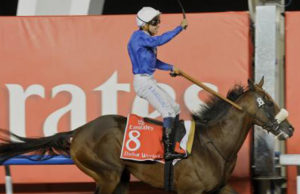
Dubai. Centre of the racing universe for the International Carnival of Racing culminating in the World Cup.
But raiding the Dubai carnival requires minute to minute planning and this year he and Chris Haynes of Equine SA who Mike entrusts with all his logistics, itineraries, insurances, collections etc, began strategizing in May for next year’s festival. So keen are the Arabs to attract trainers from around the globe that they offer all kinds of financial incentives for owners to campaign their horses there during carnival. Travel, stabling during the carnival, and other costs are subsidized.
Mucking out and cleaning the yard is handled by Indian or Pakistanis paid for by the racing club.
Interestingly, Mike voiced a suggestion that South African owners and trainers could well benefit by researching other middle eastern countries to raid – like Qatar and Turkey in particular where he already has had a fair amount of success. Conditions are different in these countries and somewhat cheaper to campaign horses.
Mike is quick to emphasize that “one can never stop learning in this game” and the de Kock yards are not short of inspiration or ambition. His newest concept is guaranteed to get South Africans intrigued. He is contemplating enlarging his Newmarket (UK) operation in order to accommodate what amounts to a string of largely South African-breds, hopefully owned by South Africans, located permanently in the UK from where they can campaign all over Europe and the Middle East.
Where Mike’s concept is really imaginative, is that South African trainers can send him horses which he will manage for them, but they will race in the trainer’s name. This apparently can be done in terms of the Jockey Club rules and the big advantage is that the South African trainers need have no fear that they will lose their horse to another trainer. De Kock will charge his standard fee, but the trainer will still be paid his normal percentages and de Kock will take a lesser cut. Logistics and travel costs, being as they are in Europe more user-friendly, the concept is sure to attract close scrutiny from South African owners who will obviously also benefit from the bonus of the de Kock experience and nous. Shrewd man that he is, it is just quite possible that Mike sees in this initiative, the possibility of its originality, attracting new owners, not only from South Africans in South Africa, but also possibly to attract owners from the one million South Africans resident in the UK.
Mike keeps yards in Johannesburg, Durban, Newmarket and Dubai with homes in KZN and Gauteng but while they are satellite yards, they are also fully integrated with the de Kock structure. The staff is fully interchangeable and interestingly, when he campaigns in Dubai, he takes with him South African work riders. These are not stable hands, he stresses, but fully professional work riders whose opinions he values and encourages.
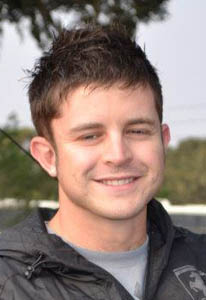
Coming Of Age. Mike’s son Matthew De Kock turned 21 recently and is a chip off the old block
The de Kock travelling entourage is often a large one with Diane and stable assistants, work riders and owners chalking up a basketful of voyager miles. Son Matthew, after a learning stint in the UK, is now permanently in the Gauteng stables with Mike’s assistant trainer John Buckler, and long time staffer, Nathan Kotzen ramrods the yard at Summerveld. While Diane and Mike are often apart for weeks, they speak to one another each day, (‘don’t ask me, ask Chris what my phone bills are!’), because of her special responsibility to bring on the yearlings. Diane really cannot leave their Randjiesfontein yard for any length of time. Asked whether this did not put a strain on their marriage, Mike chuckles in reply, “absence makes the heart grow fonder” and since they are in daily communication there is no question of “out of sight out of mind”!
Recently Mike has been heard promoting the importance of Epol feeds in his feeding regime which means that he imports these feeds into Dubai and the UK. Will this be part of a new de Kock initiative to launching a horse feed export enterprise? After all he runs an active website business and blog facility. So why not another project in his spare time? Good thought, he replies. Now he just has to convince Suroor to play ball!
Training with de Kock is, unsurprisingly, expensive, but a great many owners still seek his services. And he entertains them from the grandest to the most humble and you will get your piece of time from Mike, just as Sheik Mohammed Bin Khalifa and Mary Slack do. When Mike is in Dubai the Sheik comes to the yards every Saturday morning and spends a couple of minutes with each of his horses. Mike describes him as a knowledgeable horseman with a passion to compete in every event, no matter what the chances, a lot like Mary. And also like Mary, he has a big budget but he buys first with the breeding barn in mind and occasionally because a potential champion comes on the market.
Is it difficult to get accepted into the de Kock yards? Surprisingly not. Phone him. He will phone you back and if he likes the sound of your horse, he will make a place for you.
Of course, that begs the question – how does de Kock judge his horses? Pedigree to de Kock is not more important than conformation, movement, speed and heart. If your horse has those attributes, Mike is interested. But when it comes to selecting yearling he calls in his advisors like Jehan Malherbe and vet Dr McVeigh and leans on them heavily. They travel the world together as a team scouring the auction yards for the most attractive prospects. They get it right most times.
When asked an opinion Mike rarely holds back but he admits (“I am not a marketing man”) to being non-plussed as to how to bring the patrons back to the race courses in this country. Racing missed out when the transition came and people, particularly the black fraternity, left the courses in droves. As to why the crowds are still present in the UK, Dubai, Singapore, Australia and Hong Kong, Mike wonders whether it has something to do with “culture”. In the UK he points out that there is a very strong equine culture, (go to a Newmarket meeting on a Friday evening and the patrons in their thousands put out £40 a seat), in Dubai its entertainment and in the East it’s gambling and the desire to see money in action.
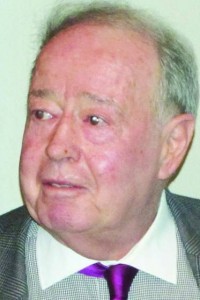
Good Advice. Prof Brian Kantor speaks a lot of sense, says De Kock.
Mike thought we should consider tapping into the wisdom of Brian Kantor, the investment and marketing wizard behind Investec who recently advised the administrators of South African racing to forget about the casinos and other diversions and promote the sport using the one feature its competitors don’t possess, “the racehorse”.
As Mike puts it, everyone loves a horse, trouble is South Africans have forgotten where to see it in action or have not been sufficiently encourage to go and witness this phenomenon. Look how Frankel and Black Caviar fill the racecourses. I would never put Mike in the awkward position of naming his favourite charge, but I suspect at the moment it might be Igugu, simply because he has allowed Avontuur to name a gorgeous blended red after the great mare, an accolade he surely appreciates and endorses!.
With all the success he enjoys overseas, has Mike ever been tempted to leave South Africa for a permanent home in the UK from where he could ply his trade with less frustrations and logistical nightmares?.
He admits to being tempted. ‘But when we thought it over carefully and covered all the pros and cons, we had to admit that we really love South Africa, the lifestyle, our companions and the wine. So we will continue to live with the hassles and the frustrations and keep our friends.”
Article commissioned by the TBA to showcase the South African racing and breeding industry – David Mickleburgh






